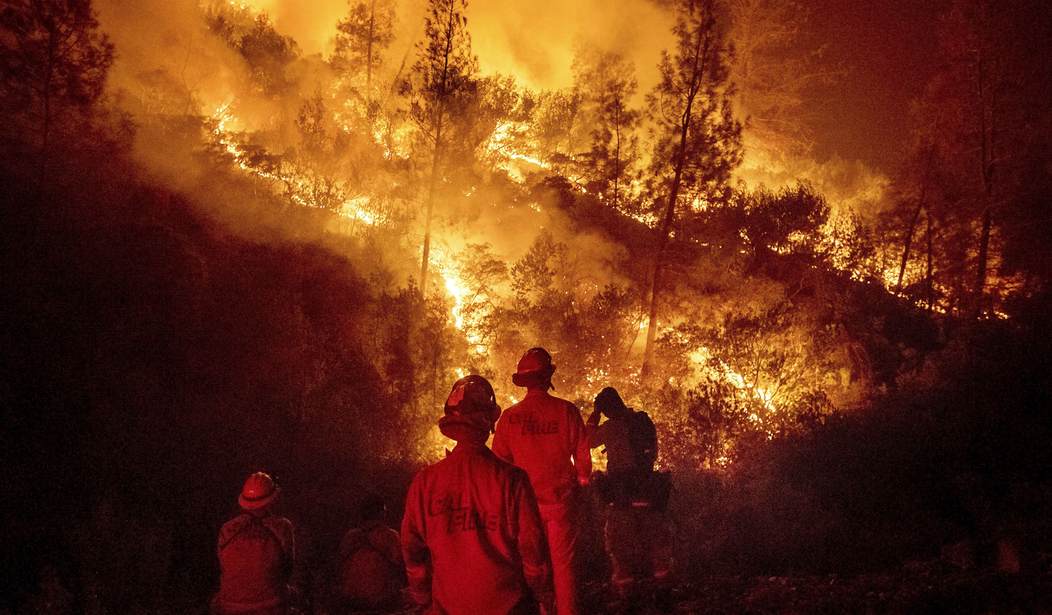Climate change is blessed with extraordinary superpowers. It can damage unborn children — says abortion supporter Joe Biden. Climate change was supposed to cause nuclear war by 2020. It leads to “white supremacy,” says a prominent screwball congresswoman. It’s even started revolutions.
But did you know that climate change causes inflation?
It’s true. An article in The Atlantic confirms our worst fears: inflation isn’t caused by excess dollars being poured into the U.S. economy by spending-mad Democrats. Climate change is the culprit.
Now, Biden is not a king, nor does he have an alchemist on staff. But some economists believe that he accidentally did something similar last year when he passed a $1.9 trillion relief bill into an economy still constrained by the pandemic. Flush with $1,400 stimulus checks but stuck at home, consumer spending on durable goods surged. But where was all that stuff supposed to come from? America’s overeager excess of dollars leapt into the world, chasing goos from factories shut down by the Delta variant and ports clogged with shipping containers.
But it also went chasing after … scarce lumber from Canadian forests. Some of the biggest causes of today’s inflation do not seem related to the sudden surfeit of dollars. The surge in dollars can’t explain why gas prices are so high or why coffee prices are spiking. Something else is going on.
Yes, lumber is sky-high, as is the price of a barrel of oil. But does anyone else notice the similarities in those two commodities? They are both among the heaviest regulated industries in the United States.
Since Joe Biden entered office, he has done his best to jack up the price of oil — something the left prays for as a means to cut consumption. And by removing millions of acres of federal land from development, the Biden administration has cut the potential supply of lumber just when a spike in demand was occurring.
The old bugaboo of supply and demand just can’t be legislated or wished out of existence.
The first mismatch is between fossil-fuel supply and demand. According to International Energy Agency data, the world has dramatically reduced its investment in oil and gas production over the past few years. This hasn’t happened only because of climate change: Yes, investors are skittish about long-term fossil-fuel demand in a decarbonizing world, but they’re also angry that oil stocks have performed so pitifully over the past decade.
Yet the world has not reduced its appetite for oil. It has continued to invest in cars, trucks, planes, ships, and plastic-dependent factories at a voracious rate, according to the IEA. Nor is it investing in zero-carbon energy fast enough to pick up the slack from declining oil investment. In 2021, the world put only $755 billion into the energy transition. By any historical measure, that was a bonanza amount—but it must more than quadruple,to $4 trillion, in the next decade for the world to avoid more than 1.5 degrees Celsius of warming while meeting its energy needs, the IEA says.
Note that the piece didn’t say when that 1.5 degrees of warming will happen. They never do. It’s always an emergency that must be addressed now or we’ll all die.
By “transitioning” away from fossil fuels, the economy contracts thanks to the major increase in energy costs. Any carbon savings will come not from new technologies but from a good old-fashioned depression or recession.
During the pandemic recession of 2020, CO2 emissions fell 5.4% — a clear signpost for how the left wants to cut our carbon footprints. Not surprisingly, even with the massive cut in CO2, the amount of CO2 in the atmosphere continued to grow at about the same rate as in preceding years.
We don’t know enough about how greenhouse gasses are absorbed into the atmosphere, and every theory about it has proven to be spectacularly wrong. But we’re being stampeded into believing we’re all going to die unless we stop using fossil fuels.
Let’s get the science right first. Then we can proceed without bankrupting western economies.










